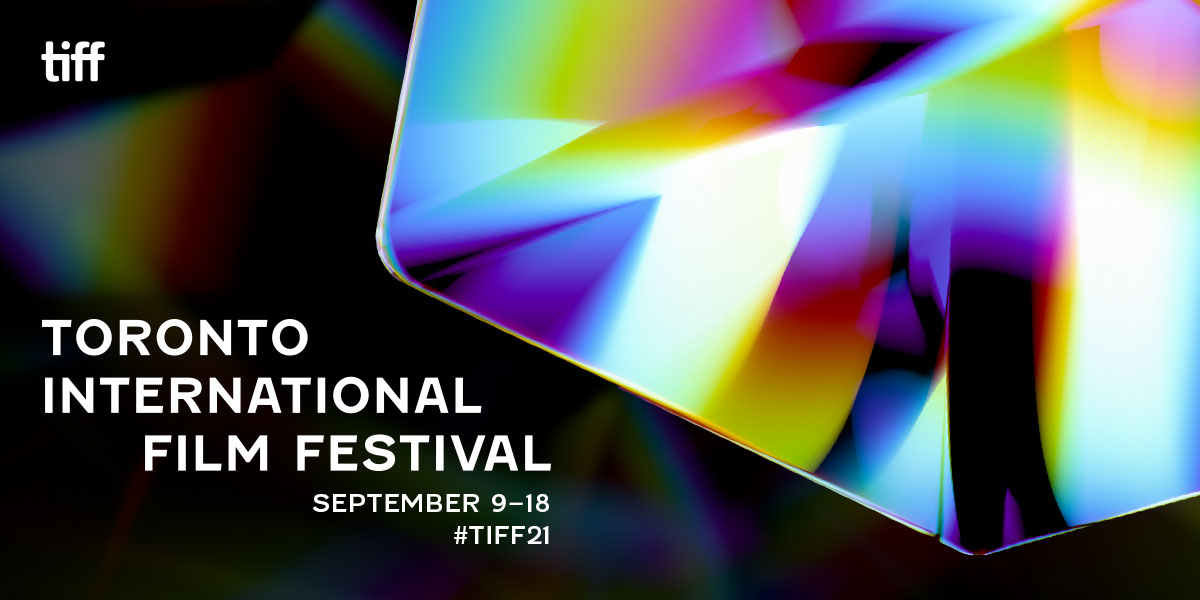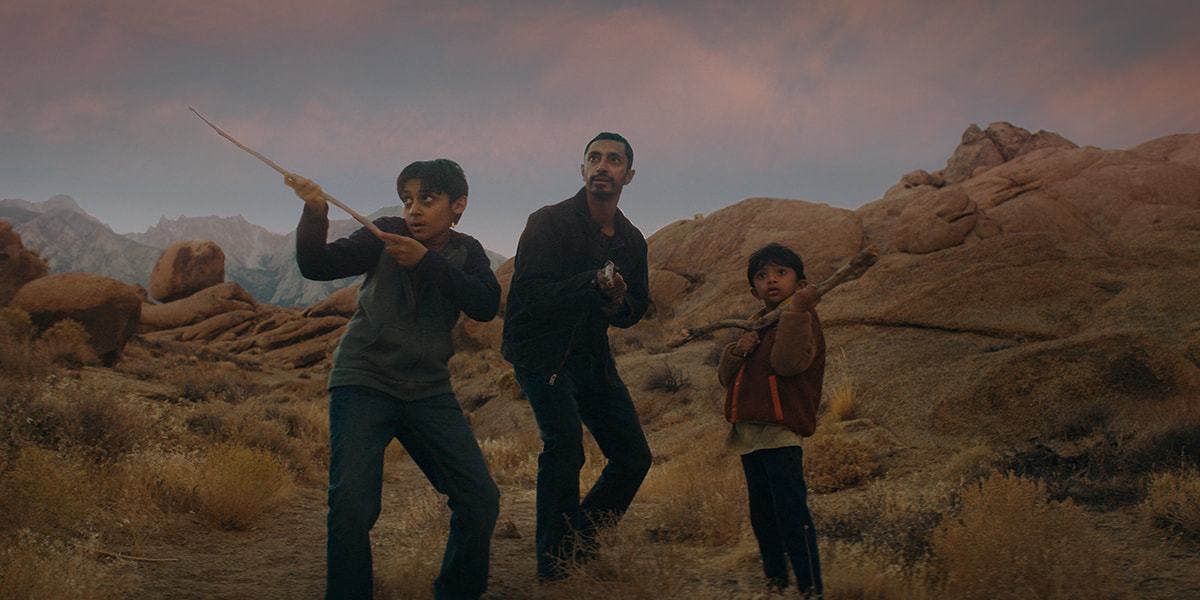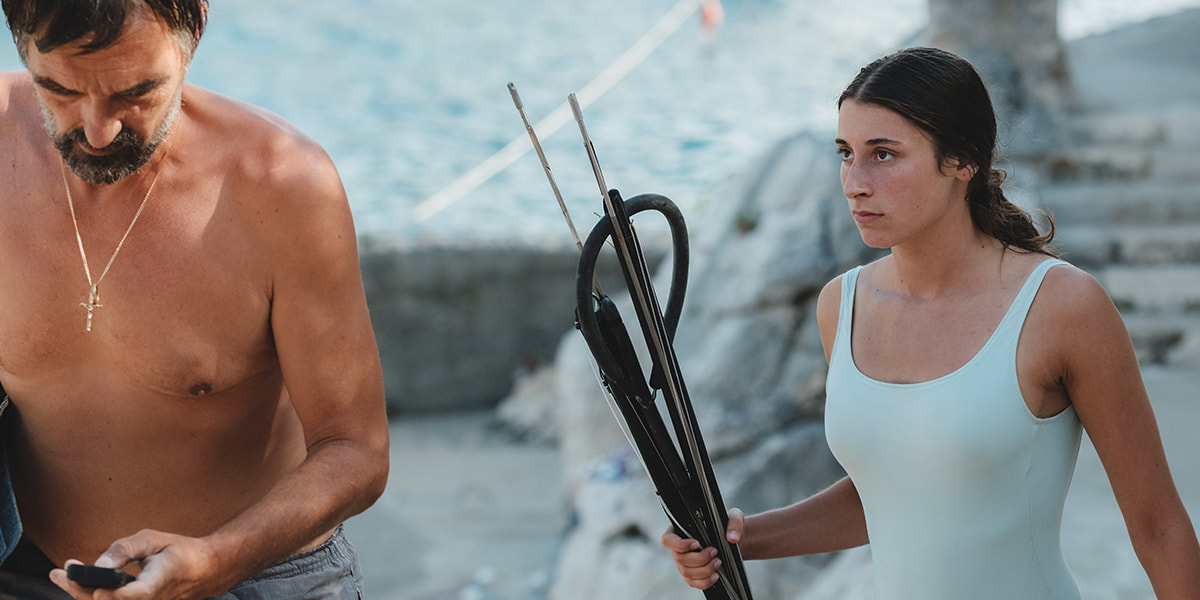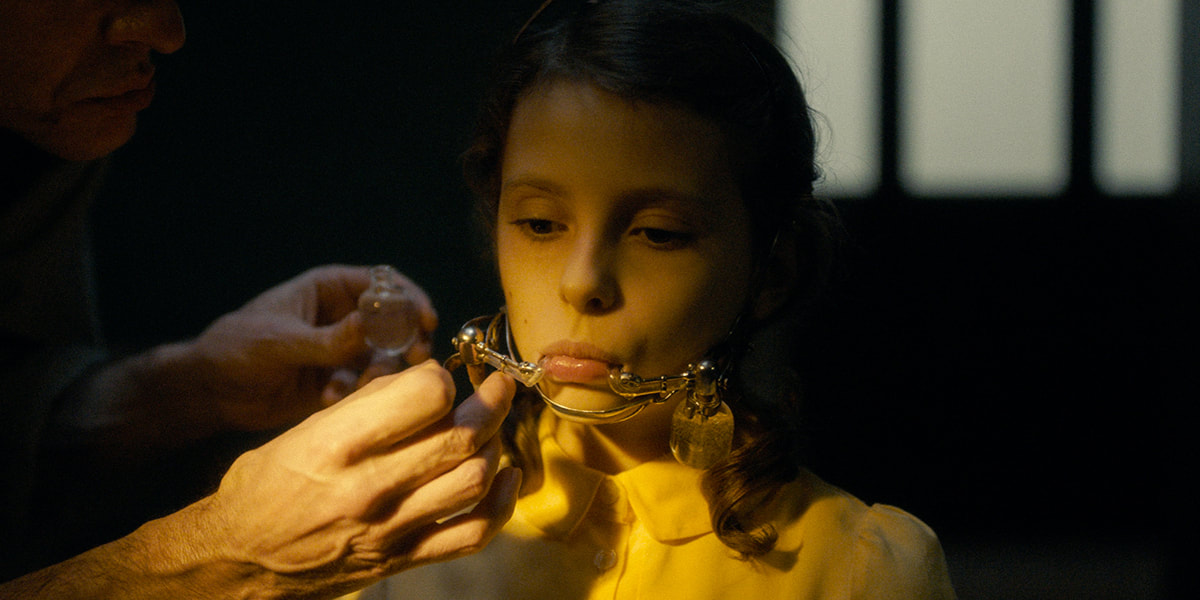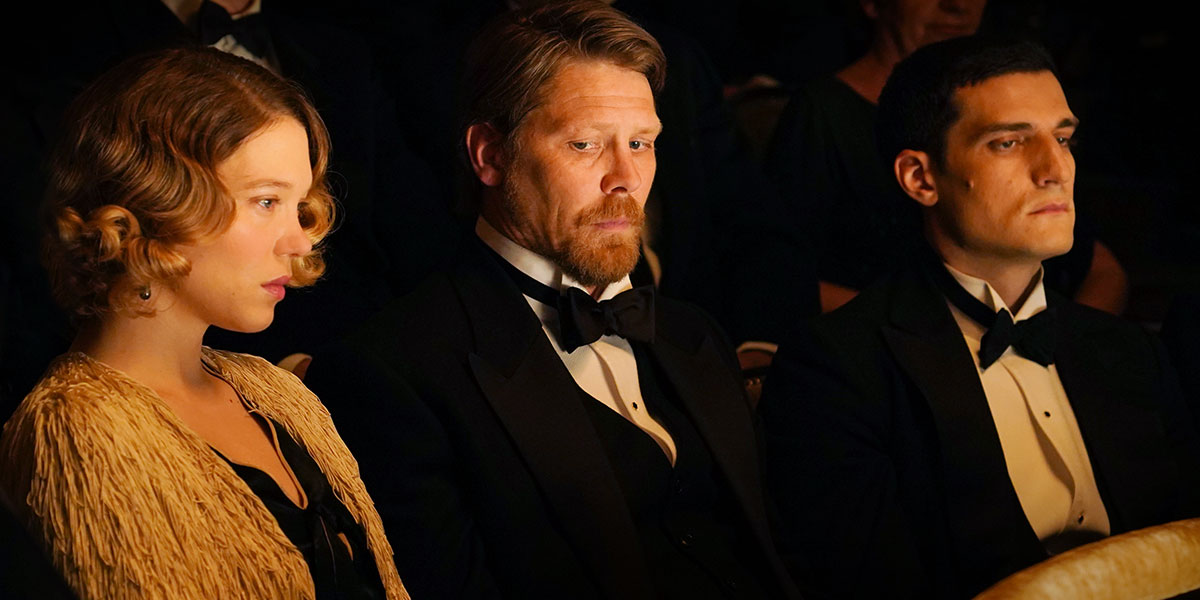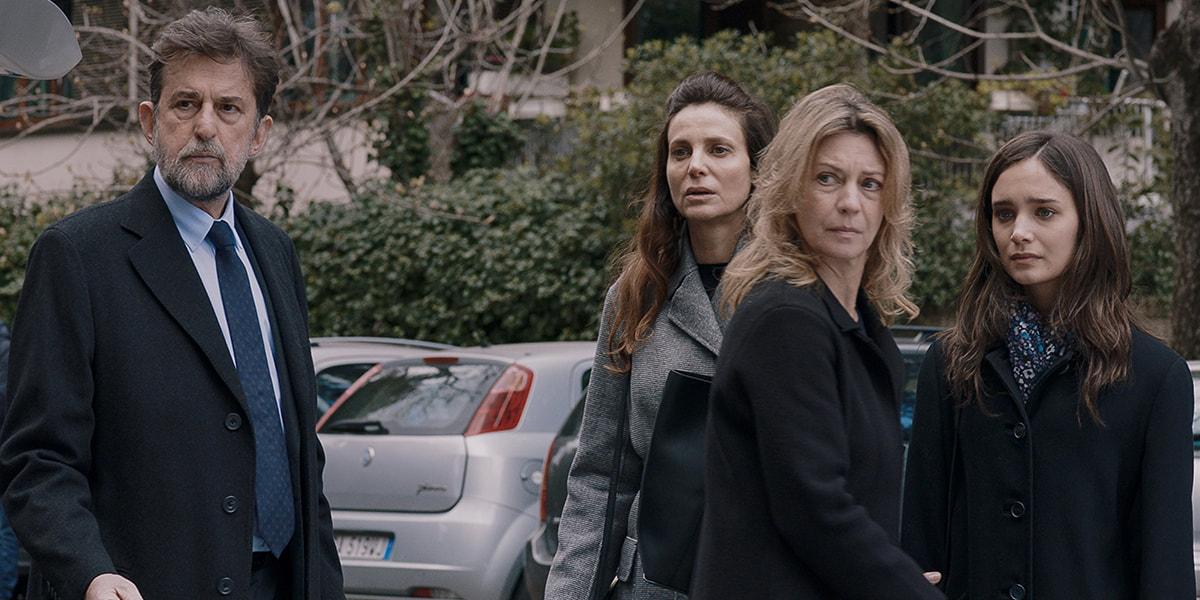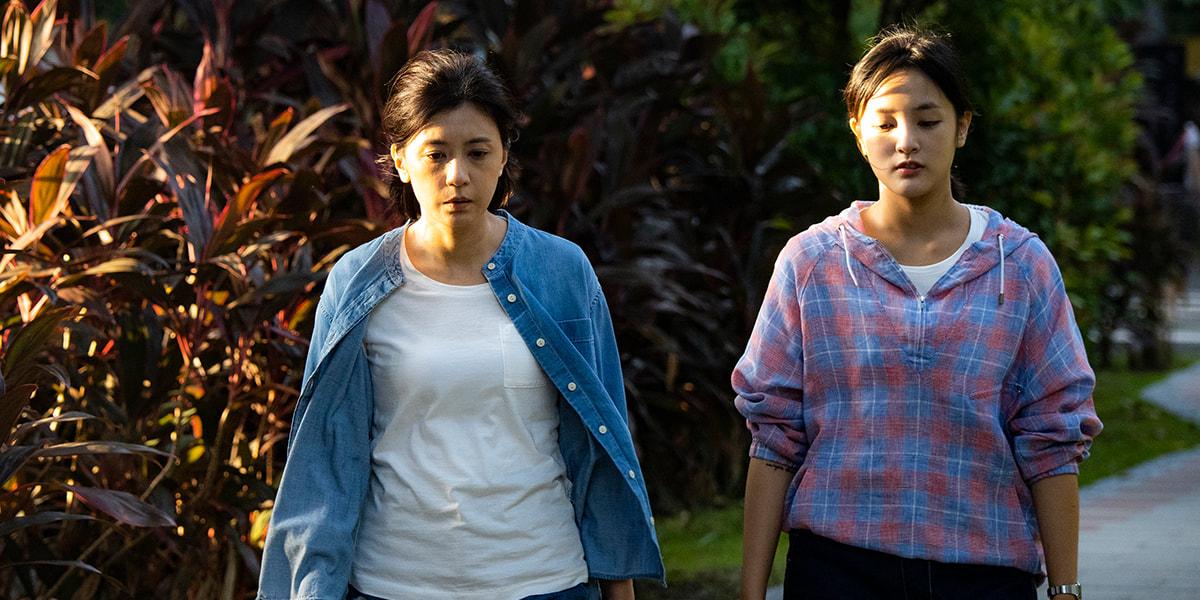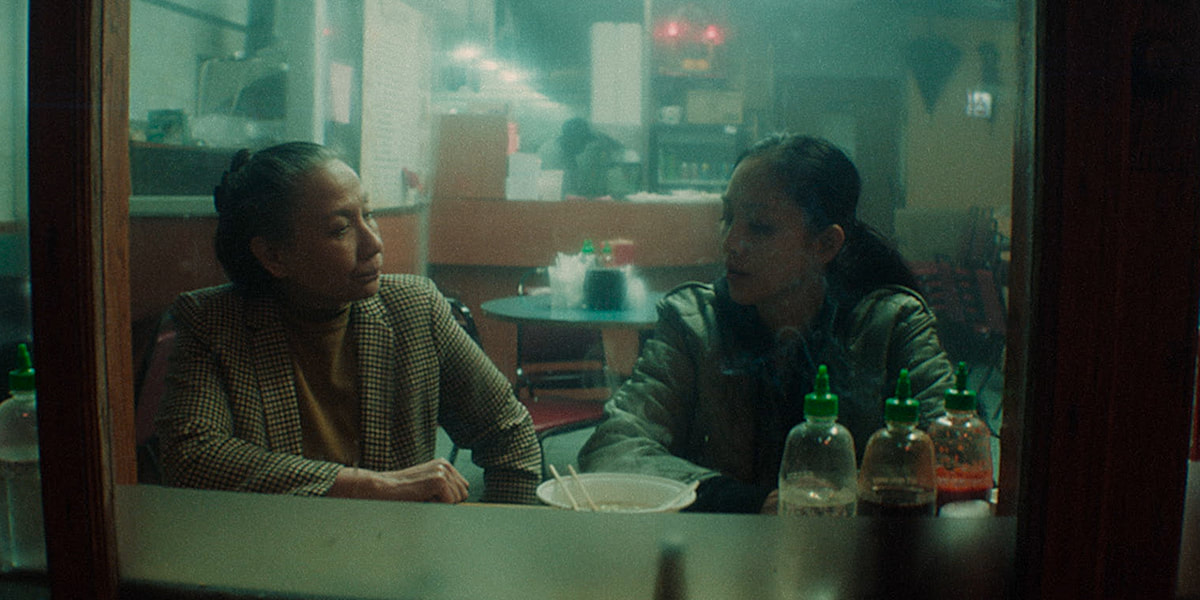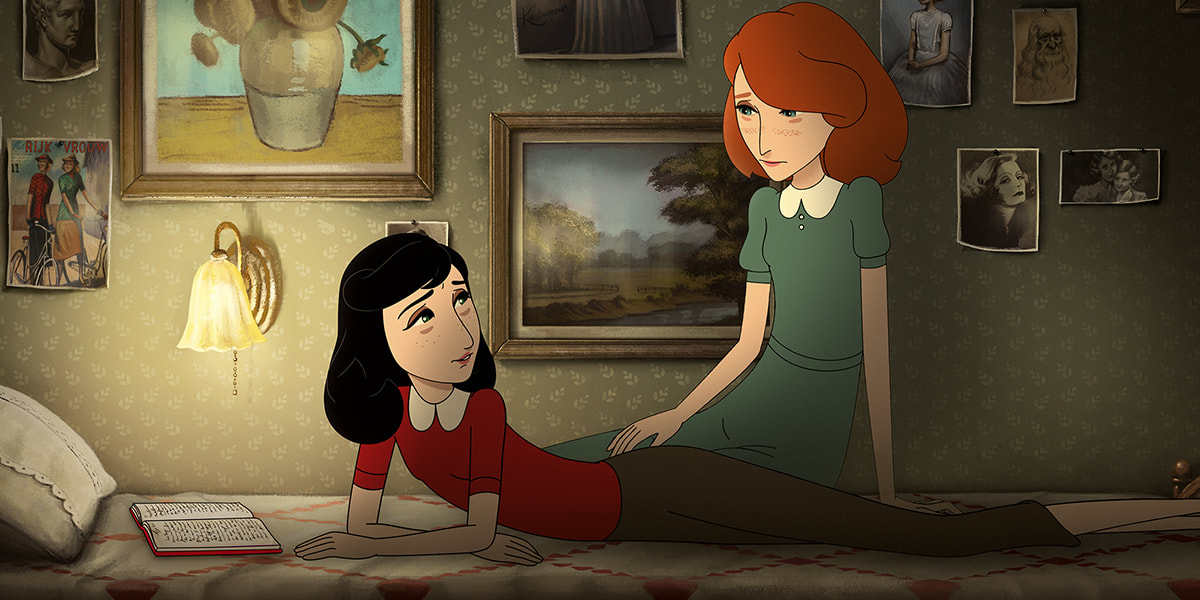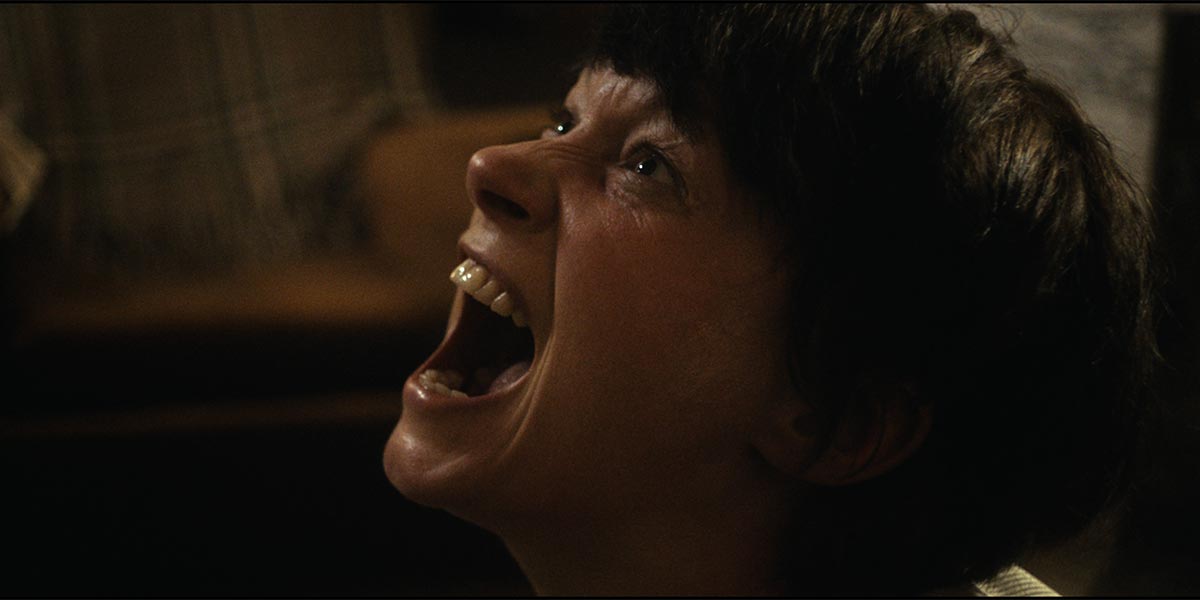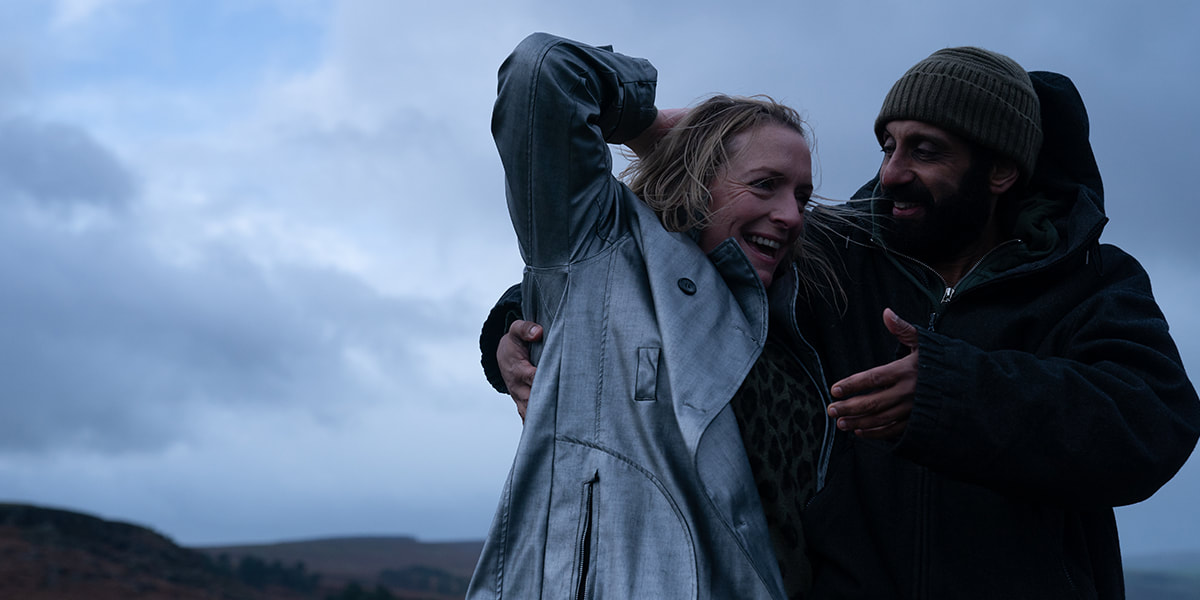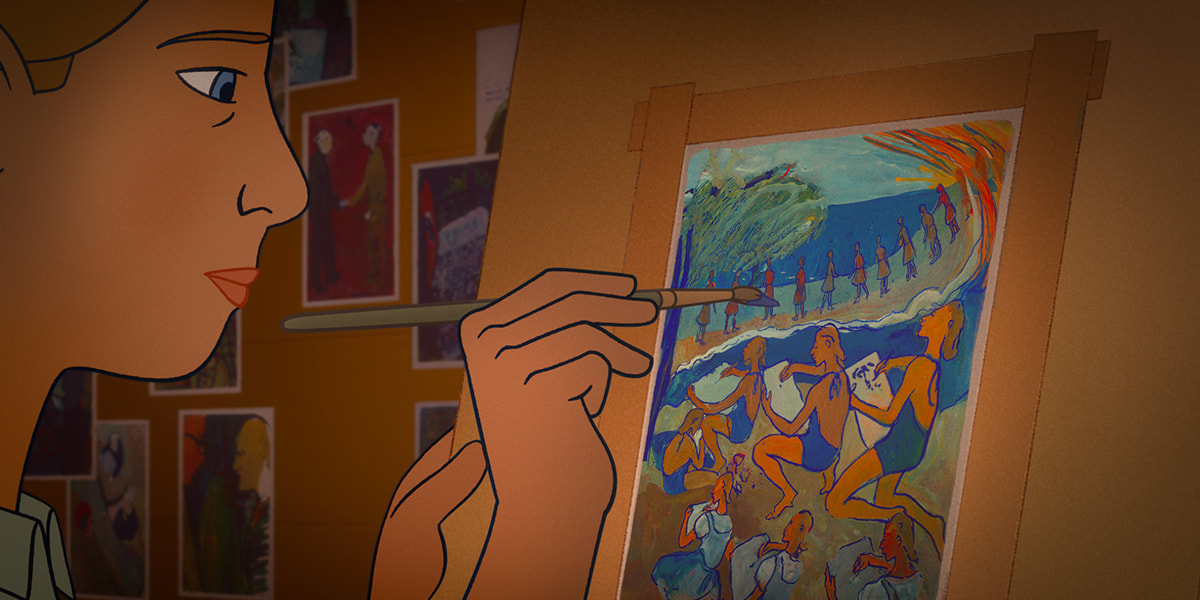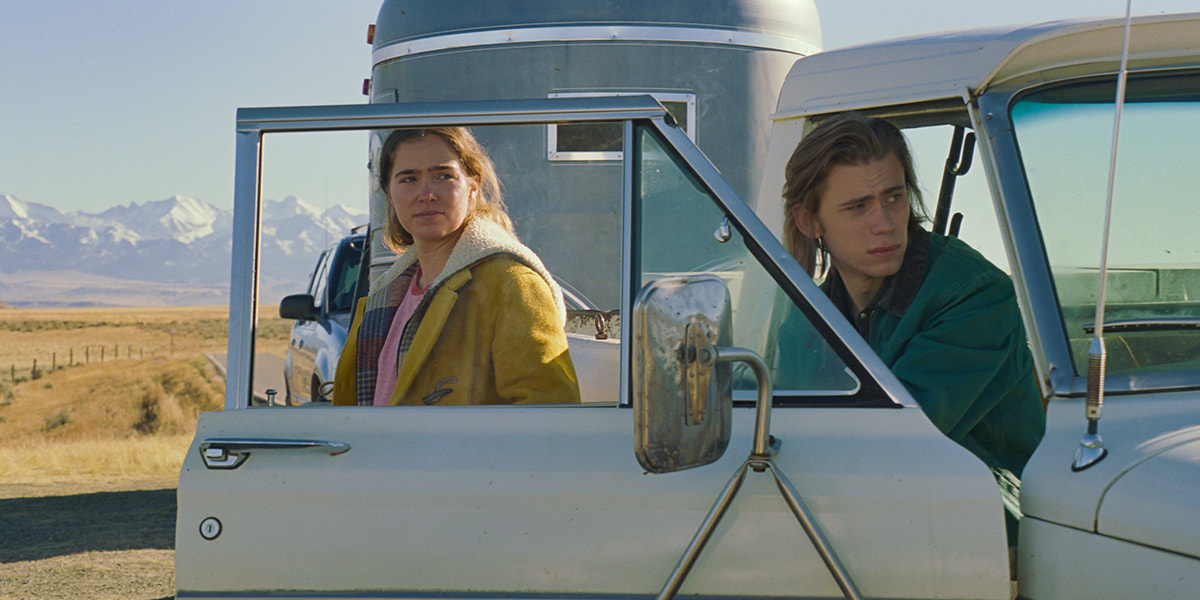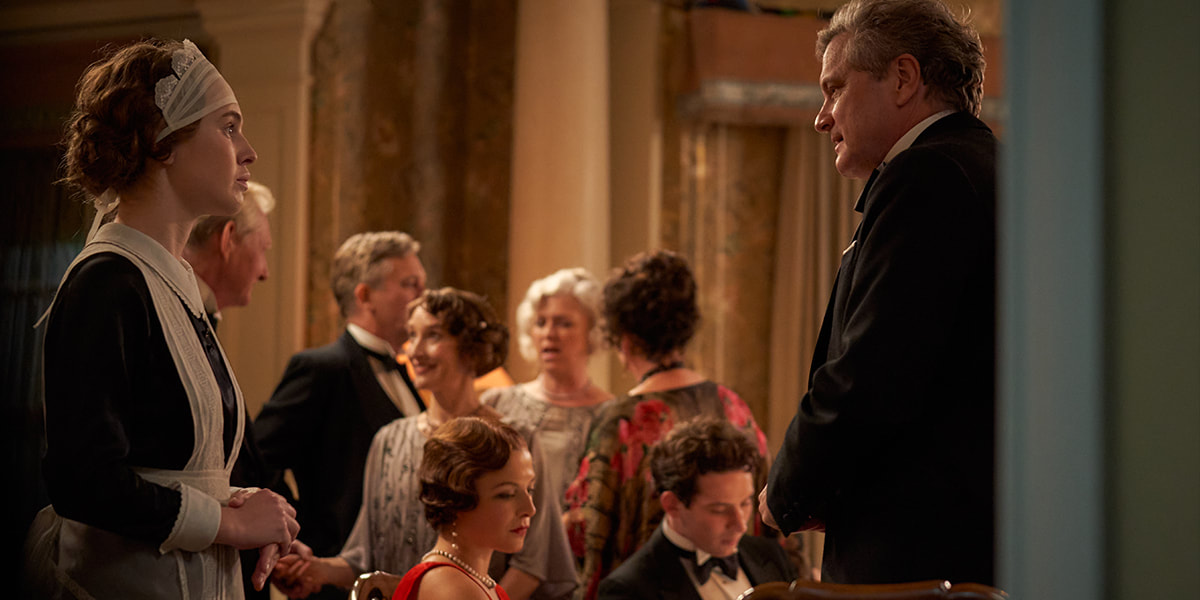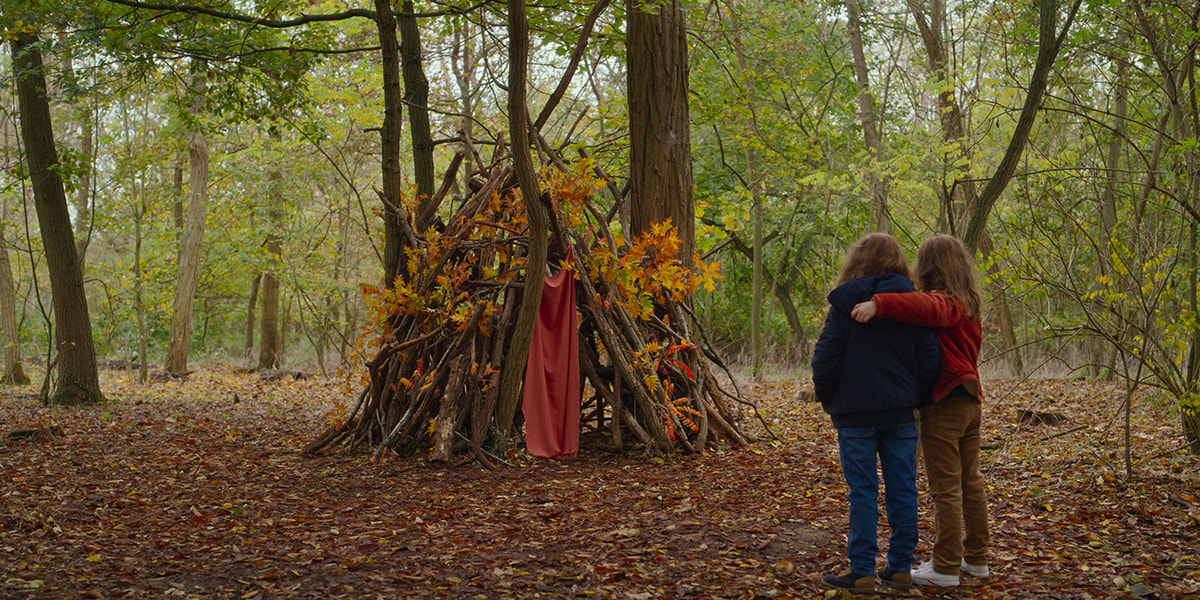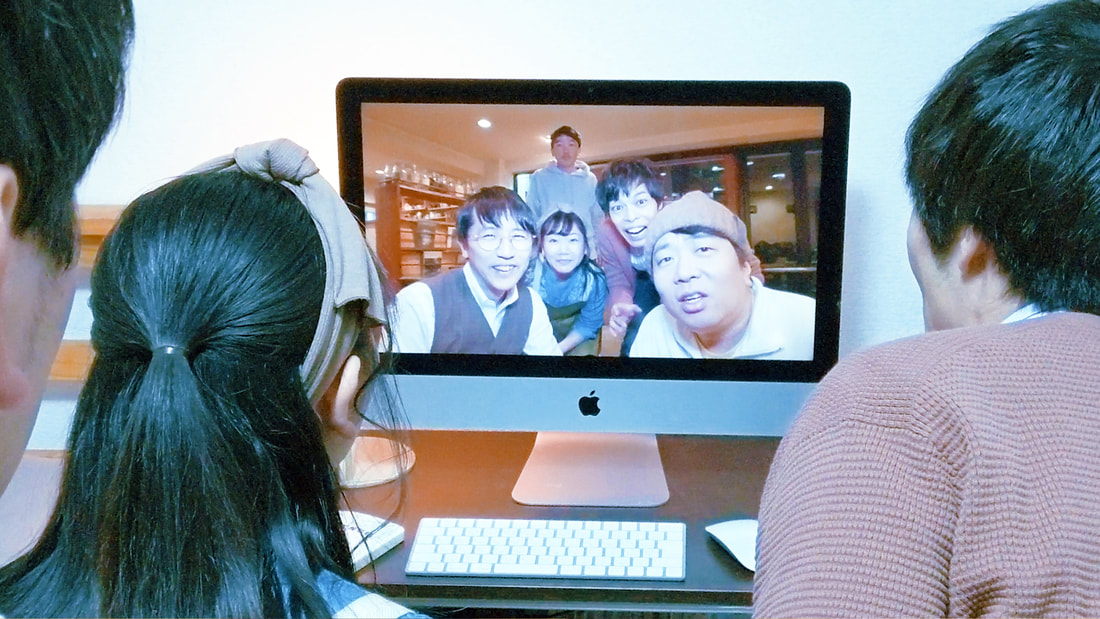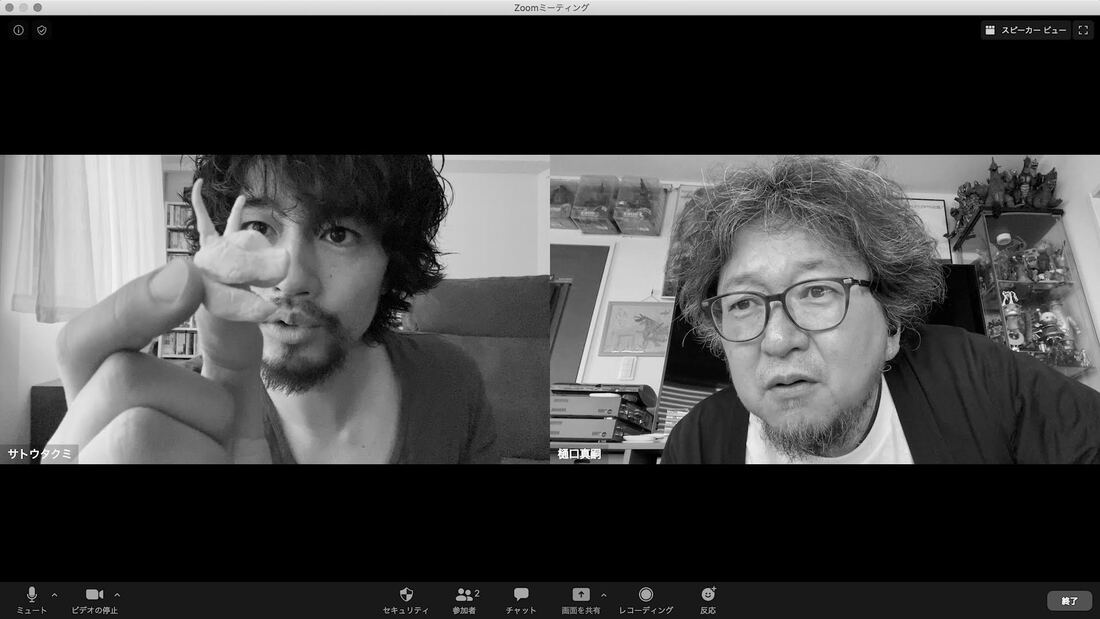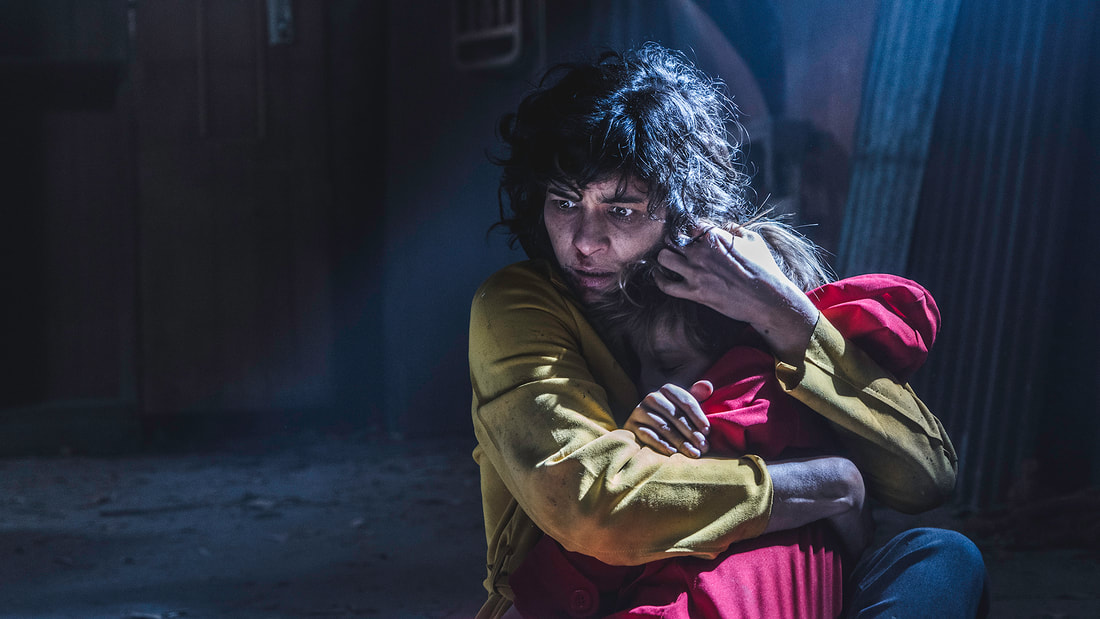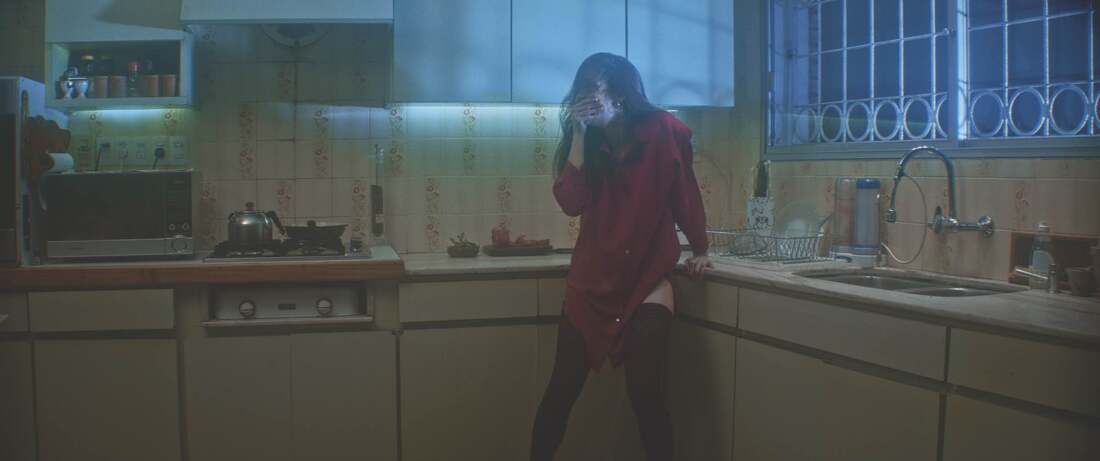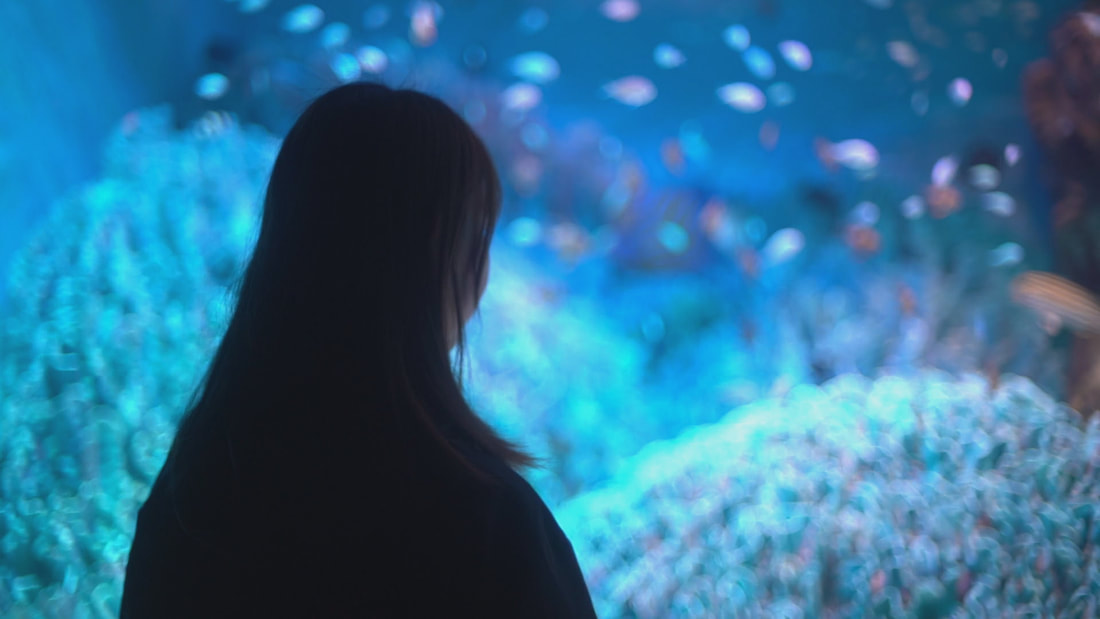|
By Sean Boelman
It is that time of year again for the Fall festival season, in which some of the most exciting films of the year debut and screen, from acclaimed international pictures to soon-to-be awards contenders. One of the most prestigious of these festivals, the Toronto International Film Festival, returns again this year with another hybrid edition, offering both in-person and virtual screenings to Canadian audiences.
For the second year in a row, we at disappointment media have gotten the opportunity to cover the festival remotely. Although we are having to wait to see some of the biggest films to screen at the festival in a theatrical setting when they are released here in the States, we have gotten to watch plenty of great films from around the world. Here are some of our thoughts on the films we have screened! Dionne Warwick: Don't Make Me Over
Dionne Warwick has been in the spotlight in recent months for her hilarious online presence, but before that, she was one of the brightest musical stars in all of history. Dionne Warwick: Don’t Make Me Over is a very by-the-book biographical documentary, but it does justice to its absolutely legendary subject and of course, has plenty of great music. Those looking for an in-depth dive into Warwick’s life story will be disappointed, but it’s a pretty satisfying watch overall.
Becoming Cousteau
Jacques Cousteau is undeniably one of the most influential explorers of all time, so it’s surprising that it took this long for there to be a major biographical documentary about him. Liz Garbus’s Becoming Cousteau is a pretty standard affair, but the charm of its subject is what allows it to stand out. Additionally, the film features some pretty extensive use of newly restored materials from Cousteau’s archives, and it’s always a joy to see that.
One Second
Zhang Yimou is one of the best and most versatile directors working today, having made everything from intimate dramas to martial arts epics. After a years-long delay (presumably due to censorship), his newest film One Second is a beautiful love letter to the cinema. Although there definitely seems to have been a political message cut out of the film, this story of an escaped convict inspiring a community to come together so that he can watch a film to get a glimpse of his daughter is absolutely wonderful.
Silent Night
Cynical holiday movies are a pretty unique breed in that a majority of films set around the festive season tend to be more lighthearted in nature. That said, Camille Griffin’s Silent Night has a definite dark edge to it that works quite well. Although it can sometimes feel like the film bites off a bit more than it can chew thematically, this apocalyptic comedy has a wicked sense of humor that keeps things moving nicely. And the ensemble cast, led by Keira Knightley, Matthew Goode, and Roman Griffin Davis, is exceptional.
The Survivor
In terms of production quality, Barry Levinson’s The Survivor is one of the most accomplished films to play at this year’s TIFF. It’s a flashy, awards-quality Holocaust drama with a great deal of emotion. The cast is great all-around, but Ben Foster’s performance is without a doubt the highlight. It may be a little bit overstuffed, trying to juggle both its sports and war movie elements, but the level of success it has in every other regard more than makes up for it.
DASHCAM
Rob Savage made a splash on the scene with his debut Host, shot during the COVID-19 pandemic over Zoom, but his newest film DASHCAM will prove to be much more divisive. Following an obnoxious online personality who finds herself in over her head during a trip to England, the film has some really strong horror elements in the second half. The first half is funny in what seems to be a satirical way, but upon further research, it’s obvious that Annie Hardy isn’t exaggerating herself that much, and the film becomes much more problematic as a result.
Sundown
Michel Franco’s previous film, New Order, screened on the 2020 festival circuit and split audiences with its enormously angry nature. His newest, Sundown, is a more restrained character study, but its pacing will be off-putting to some. The cinematography showing the Mexican beaches is gorgeous, and of course, Tim Roth gives what is perhaps the best performance in his already accomplished career as a disillusioned member of the upper-class who takes refuge in Acapulco.
The Rescue
Jimmy Chin and Elizabeth Chai Vasarhelyi made one of the best documentaries of the last decade in Free Solo, so their newest film The Rescue was obviously highly anticipated. Although the film isn’t as extraordinarily compelling or gorgeous as their last one, it’s still undeniably well-made. Chen and Vasarhelyi clearly have an eye for capturing extraordinary feats such as this on film and telling the stories of the people who achieved them in a moving way.
Encounter
Hot off his Academy Award-nominated performance in Sound of Metal, Riz Ahmed is delivering yet another demanding performance in Encounter. This time around, he is much better than the movie he is in, following a veteran taking his children on a road trip to protect them from an extraterrestrial threat. The first hour or so of the film is really strong, blending thriller and family drama elements quite well, but once the film reveals its hand, it loses a lot of its steam.
Murina
Antoneta Alamat Kusijanovic’s Murina is perhaps one of the most impressive feature debuts of the year. Although this is a story we have seen done many times before, Kusijanovic’s execution is quite strong in a way that makes it feel refreshing. The three central performances — from Gracija Filipovic, Leon Lucev, and Cliff Curtis — are all great, as is the gorgeous cinematography showing the European beachside. Although nothing comes unexpectedly, the charm of the film lies elsewhere.
Earwig
Lucile Hadzihalilovic’s fantasy film Earwig definitely had one of the more unique premises of this year’s TIFF lineup. While it isn’t exactly what one would call a midnight movie, it has some of the same unabashedly weird characteristics that define that type of film. Following a young girl who has ice cubes for teeth and her caretaker, this is definitely a slow burn. Admittedly, the film does confuse ambiguity for subtlety at times, but the atmosphere is so well-built that it is a hypnotic watch.
The Electrical Life of Louis Wain
Benedict Cumberbatch is no stranger to biopics, but The Electrical Life of Louis Wain is certainly the most unique one he’s been in to date. Following an artist and inventor who specializes in painting pictures of cats, it’s the type of film that benefits from its unabashed quirkiness. Will Sharpe’s visual style is very distinct, with an energy that is… dare I say it… electric. Although Cumberbatch’s performance falls in line much with what he has done in the past, he is great at it, so it’s worth watching.
The Story of My Wife
Ildikó Enyedi’s The Story of My Wife was one of the lowest-rated films at this year’s Cannes, so only the bravest of critics took a chance on the film at TIFF and were rewarded with a surprisingly pleasant watch. Although the almost three-hour runtime is unwarranted, especially given the fact that its story is so simple and straightforward, it’s a charming little romance. The chemistry between Gijs Naber and Léa Seydoux is absolutely electric and what sells the film.
The Eyes of Tammy Faye
Michael Showalter’s The Eyes of Tammy Faye is a would-be prestige picture that hopes to be a comedic biopic, but Abe Sylvia’s script is far too indecisive on its subject to work. For much of the film, it’s hard to tell whether we are supposed to root for, pity, or laugh at the eponymous televangelist, and that creates a lot of really jarring tonal shifts. Jessica Chastain overacts as usual and is very annoying, but it fits here. It’s a shame, because Andrew Garfield’s performance is genuinely great, and Showalter’s direction is solid, but the film is nearly insufferable.
The Good House
Sigourney Weaver is overdue for a strong starring role, but The Good House was not it. Following an alcoholic realtor who reunites with an old flame, the film is an absolute mess tonally. There’s just too much going on in the film, from the main storylines to a subplot about some of her clients, resulting in an ending that is almost laughable. Weaver’s performance is strong as always, serving as the glue to hold the whole thing together, but even she struggles to pull it off.
Three Floors
Italian filmmaker Nanni Moretti has made plenty of acclaimed films, so it was a shock when Three Floors debuted at the 2021 Cannes Film Festival and was mostly panned. And if one wonders if the film is actually that bad, the answer is a firm yes. However, there is something alluringly watchable about this ridiculous melodrama in the same way that it’s hard to look away from a horrible car crash (which is fitting because of the film’s supposedly shocking but nearly laughable opening scene).
The Falls
Plenty of filmmakers have taken on the challenge of telling the story of the COVID-19 pandemic to varying degrees of success. Chung Mong-Hong (whose film A Sun was shortlisted for Best International Feature last year) manages to do so in a way that is surprisingly touching in The Falls. The thing about Chung’s film that works so well is that it isn’t about the pandemic itself, but rather, how people reacted to it, and that results in a film with even more resonant themes.
Snakehead
Director Evan Jackson Leong’s Snakehead is meant to be a crime thriller with a deeper message, but it doesn’t live up to its potential. There is some commentary to be found here about immigration in the United States, but the film gets far too caught up in the tropes of the genre to be anything more than passive entertainment. While predictable, the story has enough in terms of excitement to make up for largely uninspired action and less than impressive performances.
Where Is Anne Frank
Ari Folman’s animated documentary Waltz with Bashir is an absolutely phenomenal film, hence why his family parable Where Is Anne Frank is such a disappointment. The animation is just as strong as one would expect, but from a narrative standpoint, it is absolutely insufficient. Beyond the problem of making Anne Frank a side character in her own story, the film is nearly offensive in how it uses the Holocaust as a metaphor for the modern refugee crisis. It’s undeniably well-intentioned, but misfire after misfire make it nearly unbearable.
You Are Not My Mother
You Are Not My Mother is the type of film that seeks to build horror more through dread than simple scares, but it isn’t terribly effective in doing so. Kate Dolan’s film is based on Irish folklore, but doesn’t explore it in much depth. Instead, what we get is a mostly psychological piece, with slow pacing and much of the suspense coming from not knowing what is true. It manages to be both too straightforward and ambiguous to be even unnerving.
True Things
Harry Wootliff’s True Things is a romance like many we have seen before, but the bleak realism of what it depicts is effectively heartbreaking. Tom Burke and Ruth Wilson create a tremendous dynamic between them, capturing the ups and downs in the relationship. Burke is especially impressive in his role, giving a performance that is equal parts charming and unhinged. The story is at times frustrating, as the psychological cycle the protagonist is experiencing causes a lot of repetition, but it fits the themes well.
Ali & Ava
Much of the charm of the romantic dramedy Ali & Ava is in its simplicity. Following a landlord going through a divorce and a single mother struggling to stay afloat as they form an unexpected connection, the film is sweet in all the right ways, even if it struggles to do anything particularly profound with its themes. The film shows the potential to explore the plight of the British working class, but gets caught up in the basic humanity and empathy of the story. That isn’t necessarily a bad thing, because it’s refreshingly light, but it is unexpected.
Charlotte
One of many Holocaust films to play at this year’s TIFF (and perhaps more surprisingly, one of two animated Holocaust features), Charlotte is a good idea that is executed poorly. From an artistic standpoint, the film is solid, with a strong animation style, even if it does play it safe a bit often. That said, it is almost entirely insufficient from a narrative standpoint. The story is rushed to wrap it all up into an hour-and-a-half runtime, and as a result, any thematic nuance is lost in favor of a bunch of WWII tropes.
Benediction
The new Terence Davies film Benediction is a film that is undeniably good, but will alienate a lot of audiences with its style. Those who have seen Davies’s previous work will know that his films are slow, dry, and meditative, and while that approach works in telling the story of poet Siegfried Sassoon, it’s also not a particularly enjoyable watch as a result. Attempts at a type of acerbic wit throughout are enough to keep the viewer from being totally disinterested, and a phenomenal performance from Jack Lowden is nearly captivating, but it’s a bit too dull to work.
Montana Story
Scott McGehee and David Siegel’s Montana Story is, not unexpectedly, a gorgeous film to behold, but from a narrative standpoint, it isn’t all that impressive. Following two estranged siblings who reunite as their father nears the end of his life, the film offers a lot of genuine emotion but nothing that we haven’t seen before. That said, the two central performances from Owen Teague and Haley Lu Richardson are both great, bringing a lot of empathy to make the quiet, somber nature of the film work.
Lakewood
Many jokes have been made about the fact that every year’s TIFF lineup seems to feature a film starring Naomi Watts, and this year’s selection proves that trend to be absolutely dire. Phillip Noyce’s Lakewood is without a doubt the single worst film that screened at this year’s festival, a borderline insensitive school shooting thriller that milks genuine tragedies for the sake of supposed thrills. Shot during the pandemic, this is effectively a one-woman show for Watts, and while she gives it her all, it isn’t enough to boost an aggressively bad film.
Night Raiders
The Canadian sci-fi film Night Raiders is a massive disappointment, not because it’s bad (because it isn’t), but because the glimpses of brilliance are so obvious that one can’t help but think about what this could have been. Transporting the historical atrocity of residential schools to a dystopian setting, the film follows a mother who tries to break her daughter out of a state-run camp. It’s such an intriguing concept, but the dialogue is frequently mediocre and the performances consistently underwhelming. That said, filmmaker Danis Goulet shows a lot of potential here in her debut, and hopefully she will live up to it with her future work.
Compartment No. 6
Juho Kuosmanen’s Compartment No. 6 is a refreshingly light film that is a wonderful reminder of how important it is for us to connect with one another. Following two very different strangers who befriend each other when they are forced to share a cabin on a long train journey across Europe. It’s a lot more subtle than most films which explore a union between two people from very different walks of life thanks to some brilliant dialogue and excellent character work. It isn’t the weightiest film in this year’s lineup, but it has lots of good observations.
All My Puny Sorrows
Based on the novel by Miriam Toews, the drama All My Puny Sorrows is destined to be one of the biggest misfires of the festival. Following two sisters who are going through mental health crises, it’s clear that writer-director Michael McGowan had the best of intentions when exploring these themes, but he absolutely fumbles them. Allison Pill and Sarah Gadon try their hardest to salvage the script but end up overacting, likely due to poor direction, and all of the technical elements are overdone. It’s the type of film that wants to be a tear-jerker, but it doesn’t even succeed in that.
Hellbound
A new supernatural procedural series from South Korean filmmaker Yeon Sang-ho, Hellbound is set in a world where people receive visions of a spirit telling them when they will be condemned to Hell, with a demon later fulfilling the prophecy. It’s an intriguing premise with shades of Final Destination, but it’s executed poorly in a way that isn’t all that compelling. The three (out of six) episodes that screened at TIFF were fine, but filled with fluff, making it clear that this might have been more suited for a feature film format.
Mothering Sunday
Eva Husson’s film Mothering Sunday is a steamy period drama that will be overwhelmingly familiar, but is a very well-executed entry into its genre. The film follows a maid sharing one final, passionate day with the wealthy man she loves before he leaves to marry for status, and there really isn’t much more to this film than a bunch of sex. That said, the cinematography is gorgeous, the costumes are exquisite (when the characters are even clothed, which isn’t very often), and the performances by Odessa Young and Josh O’Connor are great. It’s a film that delivers exactly on its promises, which makes it hard to complain about.
Neptune Frost
Saul Williams’s output as a musician is certainly very interesting, so one should expect no less of his first effort as a filmmaker (co-directed with Anisia Uzeyman). Neptune Frost is an independent, low-budget musical about an intersex hacker and anti-colonialism. If that sounds like a lot to handle in one movie, that’s because it is, but Williams and Uzeyman pull it off gracefully. And as for the soundtrack, it’s weird and creative, a soundscape mixing traditional African beats with electronic and hip-hop sounds. It’s not quite like anything you will have seen before, and that’s a good thing.
Petite Maman
As the follow-up to her widely-acclaimed period romance Portrait of a Lady on Fire, filmmaker Céline Sciamma has made an equally restrained family film in Petite Maman. Following a young girl who discovers an unexpected friendship after her grandmother passes away, this is a lovely little film about the innocence of childhood. The visuals of the film are just as gorgeous as one would expect, and young actress Joséphine Sanz is absolutely wonderful, but the film is just too low-key to be anything more than merely adorable.
The Girl and the Spider
Ramon and Silvan Zürcher’s The Girl and the Spider is the type of talky international drama that makes up a lot of festival lineups. Following a woman as she prepares to move out, causing her to reflect on her connection with her roommate, this is interesting as a relationship drama that isn’t about romance. It’s occasionally poetic, and the things it has to say about how interactions leave a lingering impact on both ourselves and others are somewhat profound, but the character development is far too thin for the film to resonate.
The 2021 Toronto International Film Festival runs September 9-18.
0 Comments
Review by Sean Boelman
The Fantasia International Film Festival has long been a refuge for fans of genre cinema to check out some of the best in weird and obscure filmmaking from around the world. In 2020, the festival pivoted to an all-online format, allowing cinephiles across Canada to check out virtual screenings of some of the most exciting films in the lineup. However, with theaters being able to re-open, the 2021 edition was able to pivot to a hybrid format, including both online and in-person offerings.
We at disappointment media are excited to be covering Fantasia remotely for the second year in a row! As we screen the film selected for this year’s lineup, we will be updating this article with capsule reviews offering our brief thoughts on the films. Hopefully this will inspire you to check out some of the awesome movies you can see there! The Last Thing Mary Saw
Edoardo Vitaletti’s film The Last Thing Mary Saw may be billed as a horror movie, but it shares more in common with a period drama than the supernatural aspects of its story that festival-goers were probably expecting. It’s not particularly scary, nor is it especially original, but the commentary on the oppression of women is at least mostly interesting. That said, the film doesn’t take full advantage of its extremely talented ensemble cast including Isabelle Fuhrman and Rory Culkin.
All the Moons
The vampire drama All the Moons is one of the most gorgeous films of this year’s Fantasia lineup. With a gorgeous level of period detail and some excellent cinematography, it’s an entrancing feature. Admittedly, the film works more on a visual level than a narrative one, but there are still some emotional beats that resonate very strongly. It’s definitely reminiscent of a lot of films that have come before, and are perhaps better, but it’s a very effective addition to the genre nevertheless.
Frank & Zed
Jesse Blanchard’s puppet horror feature Frank & Zed is the type of film that one can’t help but appreciate even if they don’t entirely align with its sensibilities. It’s generally a fun time, but the film loses sight of the buddy comedy that makes the first half so endearing as it turns into a gory marathon of carnage for the final thirty minutes. The level of craftsmanship on display in the puppet animation is definitely impressive, and this would have been an absolute masterpiece had Blanchard’s script been as polished as his filmmaking.
Hayop Ka! The Nimfa Dimaano Story
Hayop Ka! The Nimfa Dimaano Story is an excellent reminder of the tremendous potential that independent adult animation has. A hilarious soap opera parody, the film doesn’t aim for the low-hanging fruit in poking fun at one of the lowest art forms there is. But the real success of the film is the way in which it creates a genuine emotional connection to these characters. Even though it’s obviously melodramatic (on purpose), the genuine heart in the film is absolutely charming and unexpected.
Glasshouse
Kelsey Egan’s film Glasshouse is very reminiscent of The Beguiled in terms of its plot, but with an immersive sci-fi touch to it. The most impressive part of Egan’s film is the way in which it builds the world of the story, both through the writing and the production design. It’s definitely a tad on the predictable side because of how familiar the story is, but there’s enough going on in the story on a thematic level for it to be intellectually challenging.
Beyond the Infinite Two Minutes
Junta Yamaguchi’s time travel comedy Beyond the Infinite Two Minutes is arguably one of the most creative films to play at the festival, and while it is far from perfect, it’s an absolute load of fun from start to finish. It can be confusing and a bit difficult to follow at times, but the ambition that this has as a lo-fi sci-fi comedy is very impressive, especially given the fact that it is both a directorial debut and a pandemic feature.
#Blue_Whale
The Screenlife format developed and innovated by Timur Bekmambetov tends to be more conducive to some stories than others, and the Russian thriller #Blue_Whale is on the more successful end of that spectrum. Although it has its fair share of flaws, this story of a teen investigating a deadly social media game that drove her younger sister to suicide is consistently involving. Admittedly, it’s very predictable, the big twist in the final act being entirely expected, but it’s still entertaining regardless.
Hellbender
For an occult coming-of-age story, the Adams Family’s Hellbender works extremely well. Sure, the effects aren’t the best, and sometimes even draw the viewer out of the story, but the intensely independent feel of the film is part of what makes it so charming. It may not say anything new about suppressing one’s own identity, but its message is still one that will resonate with teens and people who remember their teenage years, and it is delivered in a way that is quite entertaining.
Wonderful Paradise
Masashi Yamamoto’s Wonderful Paradise is perhaps one of the most wild films to screen at this year’s Fantasia, and that’s a high bar with some of the weird movies that were part of the lineup. It’s a film that gets crazier and crazier as it goes on, starting as something random and getting to some hilariously bizarre and occasionally messed up places by the end. The thing that is lacking here is character development, as viewers won’t care much about the story, but it’s an enjoyable watch nevertheless.
King Car
The increasing prominence of Brazilian genre cinema has been an exciting trend for cinephiles, and so Renata Pinheiro’s King Car was set to be one of the most intriguing titles of Fantasia this year. And while the wacky concept, immersive production design, and some inspired scenes show that there is no lack of creativity on display, the thing that is missing is a sense of humor. The film takes itself way too seriously rather than embracing the inherent absurdity of the premise, and the result is a film that is nowhere near as fun as it should be.
The 12 Day Tale of the Monster That Died in 8
Shunji Iwai’s pandemic comedy The 12 Day Tale of the Monster That Died in 8 is a cute little movie. Perhaps it’s something that is lost in translation, but it’s hard to find much in the way of laughter in a series of uber-specific in-jokes. Still, watching this is effectively like watching an hour and a half of nerds talking about kaiju, and there’s something charming in the level of love and detail put into it. Additionally, while the metaphors used in the film are certainly on-the-nose, it’s a message that is just as urgent now as it was when this was made a year ago.
On the 3rd Day
Latin American horror has very unique sensibilities to it, and On the 3rd Day sees them in full display. The portions of the film that work the best here are the character-driven ones, following a desperate mother trying to reunite with her son, as a lot of the emotional beats resonare unexpectedly well. However, the supernatural elements aren’t nearly as strong, offering a solid and sometimes even hypnotic atmosphere but not much in the way of genuine scares.
Martyrs Lane
Ghost stories tend to lend themselves well to quiet horror films that skew more towards the dramatic rather than the scary ones, and that is the success of Ruth Platt’s Martyrs Lane. The film may drag a bit at times, but Platt does an excellent job of capturing a surreal and occasionally nightmarish atmosphere that will immerse the viewer in the story. The things that the film has to say about guilt and trauma aren’t particularly original, but are delivered with plenty enough emotional authenticity for it to work.
Yakuza Princess
Based on the graphic novel Samurai Shiro, the Brazilian-Japanese film Yakuza Princess suffers from coming out around the same time as two similar, bigger-budget films. It’s the story of an attractive young person discovering their family’s dark and violent past and connections to a shadow organization, hitting many of the same beats as Snake Eyes and Shang-Chi and the Legend of the Ten Rings. Japanese pop star MASUMI gives a solid enough performance, Jonathan Rhys Meyers is largely unimpressive, and the action sequences and effects are rather strong, but the script is so dull that it doesn’t work.
Hand Rolled Cigarette
Kin Long Chan’s crime drama/thriller Hand Rolled Cigarette was released to great acclaim in its home country, likely due to the fact that it owes so much to the classics of Hong Kong cinema. However, this meandering and occasionally pretentious film doesn’t have enough investment in its characters to justify its slow pacing. The visual style of the film is strong, culminating in a great action sequence which shows the potential it had, but a solid landing doesn’t make the preceding hour and twenty minutes worth watching.
The Unknown Man of Shandigor
In addition to debuting some of the most exciting new genre films, Fantasia is known for premiering new restorations of obscure classics from around the world. The once-lost espionage thriller The Unknown Man of Shandigor is one of the hidden gems of this year’s festival. Although the plot is somehow both generic and altogether too convoluted at the same time, the excellent world building of Jean-Louis Roy makes this a standout within the genre. And a fabulous performance from the legendary Serge Gainsbourg is worth watching the film for alone.
Junk Head
Returning to the festival after having debuted there four years ago, Takahide Hori’s stop-motion animation film Junk Head is undoubtedly one of the most ambitious films to play at this year’s Fantasia, if only because of how much effort and craftsmanship went into it. From a narrative standpoint, the film is perhaps a bit too complicated, taking its rather simple story and expanding upon it in a way that is occasionally confusing. However, the intricacies of the animation technique are certainly very impressive, as is the commentary that Hori offers on his themes.
Ida Red
Filmmaker John Swab has made a few B-movie crime flicks, and while his newest film Ida Red is probably his most professional-looking yet, it’s also his most forgettable. A passable drama/thriller about two criminal brothers pulling off one last job, there are some solid action sequences here, but the story is so generic that it feels like any other movie that we have seen before. The only element here that truly stands out is the cast, with great performances from Josh Hartnett, Frank Grillo, and Melissa Leo. Grillo, in particular, is at the top of his game, showing how excellent he could be given stronger material.
When I Consume You
A unique thing about the horror genre is that complexity does not always equal effectiveness. Perry Blackshear’s When I Consume You is certainly an ambitious film, mixing a revenge thriller storyline with elements of family drama and supernatural horror. It’s an interesting combination, and there are some moments of genuine emotion throughout, but they are buried in a needlessly convoluted script. It’s the type of film that has the bones it takes to be something great, but needed an additional rewrite to fully capture its potential.
Don't Say Its Name
One of the weakest links of last year’s festival was an eco-horror film, and fans of the genre hoping that Don’t Say Its Name would offer some sort of redemption will be disappointed. Ruben Martell’s indigenous horror film certainly deals with some very important issues, but it addresses them in a way that is so sloppy that the (quite overt) message doesn’t connect at all. This messy blend of ghost and slasher tropes offers a few cool kills, but a script that is so rudimentary to the point of being almost laughable.
Stanleyville
When one thinks of genre film festivals, the mind likely initially goes to horror, but it is often the weird dark comedies that tend to impress the most and Maxwell McCabe-Lokos’s Stanleyville is one such film. Centered around a contest to win a car and possibly some form of self-actualization along with it, the first hour or so is quite funny, even if it does feel somewhat random, but the final act brings all of the themes full-circle and delivers in an unhinged and entertaining way.
The Righteous
The Righteous, the feature debut of writer-director Mark O’Brien re-teams him with his Ready or Not costar Henry Czerny. However, despite Czerny’s absolutely fantastic performance, this horror story of a spiritual crisis suffers from glacial pacing and themes that feel all like they have been done many times before. Crisp black-and-white visuals go a long way in creating the atmosphere, and O’Brien’s direction is strong as a whole, but solid craftsmanship alone can’t elevate an unsatisfying script into a memorable psychological horror film.
You Can't Kill Meme
One of the sleeper hits of last year’s Fantasia was Feels Good Man, a documentary which explored the origins and history of the Pepe the Frog meme. Apparently in a bid to recapture the magic of exploring viral sensations, the festival programmed Hayley Garrigus’s You Can’t Kill Meme, and it’s nowhere near as interesting or effective. Supposedly a deep-dive into the darker side of the internet and how memes influenced the political landscape in America, this is just an unpleasant mess of ramblings and conspiracy theories.
Ghosting Gloria
The Uruguayan romantic comedy Ghosting Gloria has a premise that sounds like it could be very funny, but in execution, amounts to little more than the scene in Ghostbusters where Dan Aykroyd gets a bj from a ghost stretched into a two-hour movie. Some interesting character work aside, the film isn’t deep enough to make more than an interesting short. That said, Stefania Tortorella’s absolutely charming performance makes the film a genuinely agreeable, and occasionally genuinely funny watch.
Indemnity
As far as thriller storylines go, Travis Taute’s script for Indemnity is about as basic as they come, as it follows a man on the run after he is framed by a conspiracy that he doesn’t quite understand. That isn’t to say that the film isn’t entertaining — there’s enough action to keep the film moving for the entirety of its two-hour runtime. There are some interesting (albeit surface-level) themes exploring PTSD and the lack of support that people suffering have from the government, but these are, perhaps ironically, abandoned in favor of popcorn entertainment.
Giving Birth to a Butterfly
If nothing else, Giving Birth to a Butterfly proves beyond a shadow of a doubt that filmmaker Theodore Schaefer is one to watch. Admittedly, the script does meander on more than one occasion, but this family drama is compelling through and through thanks to some exceptional character work and strong performances from Annie Parisse and Gus Birney. The visual style is very well-defined, if a bit on the pretentious side, but it does a great job of immersing the viewer in this slightly off-kilter world.
Hotel Poseidon
Every festival — especially those that are devoted specifically to niche cinema — is destined to have at least one film that isn’t even going to come close to resonating with all audiences. The Belgian film Hotel Poseidon seems destined to be a contender for the title of most divisive film to come out of Fantasia. Some may love this grimy and occasionally hypnotic riff on The Shining, but others will be frustrated by its derivative and meandering plot. Unfortunately, while director Stefan Lernous’s craft is certainly respectable, we still found ourselves to be a part of the latter group.
Satoshi Kon, The Illusionist
Anime filmmaker Satoshi Kon made a mere four feature films in his short but acclaimed career, and documentarian Pascal-Alex Vincent hopes to pay tribute to him with his film Satoshi Kon, The Illusionist. Basic in its execution but powerful in its content, Vincent’s documentary features plenty of well-known American, Japanese, and French filmmakers talking about Kon’s filmography and how the master influenced their own work. It’s sure to be an interesting watch for anyone who already loves Kon’s films, and seems likely to win the director over a few new converts.
The 2021 Fantasia Film Festival runs August 5-25.
|
The Snake HoleRetrospectives, opinion pieces, awards commentary, personal essays, and any other type of article that isn't a traditional review or interview. Archives
June 2024
Categories
All
|
|
|
disappointment media
Dedicated to unique and diverse perspectives on cinema! |

